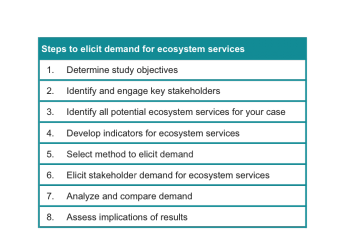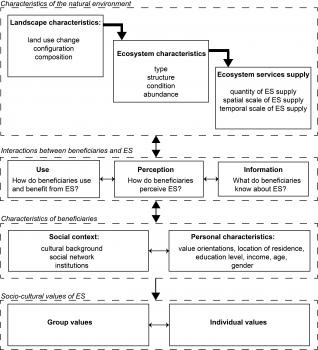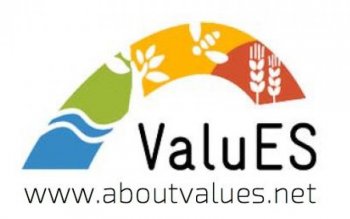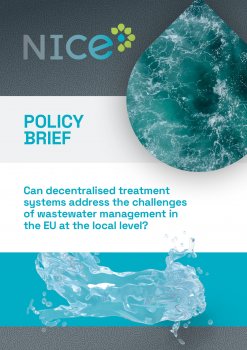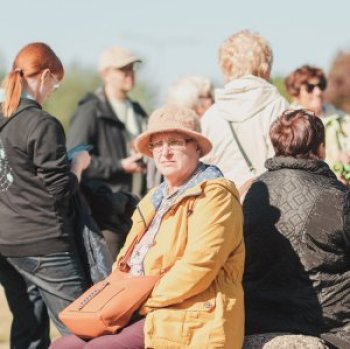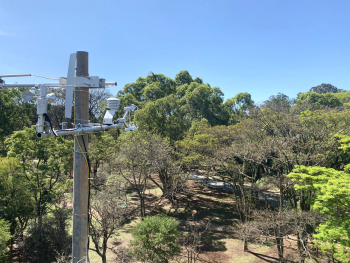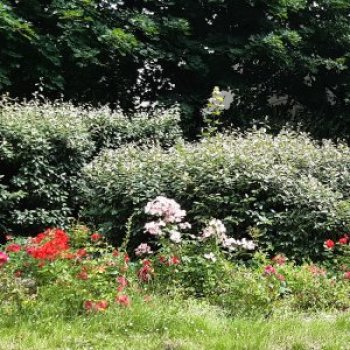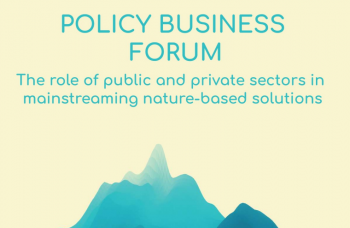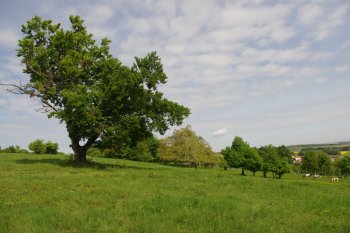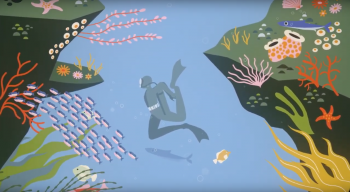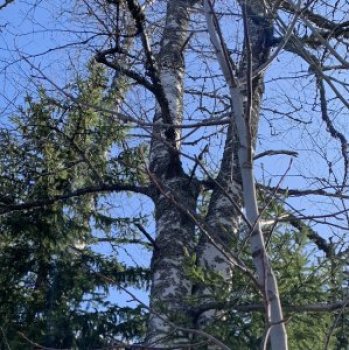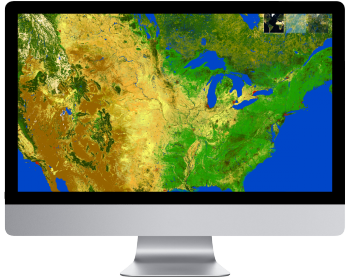Marketplace
The NetworkNature Semester on Ecosystem Restoration – Final Output Report
This report is the output document of the expert input to the NetworkNature Semester Theme on Ecosystem Restoration. It provides an overview of the work carried out during the Ecosystem Restoration Semester, describes current work on ecosystem restoration based on experiences presented and
Eliciting Demand for Ecosystem Services: Results and User Guidance from the OPERAs Demand Synthesis Working Group
Based on experience in seven of the OPERAs Exemplar case studies, we summarize what the research team has learned about working with stakeholders to elicit demand for ecosystem services and put forth an eight-step framework for doing so. Each step of the framework includes examples from the OPERAs
- Paper
Nature-based solutions coupled with advanced technologies: An opportunity for decentralized water reuse in cities
Decentralized water reuse in cities is a prominent alternative to mainstream top-down models for urban water treatment, which are based on centralized, linear dynamics of resource management. In this sense, Nature-based Solutions (“green” technologies) coupled with advanced technologies (“grey”
Application of Socio-cultural ES Assessments
Clarifications of the concept of socio-cultural valuation and a structured listing of the available methodologies facilitate a better integration of socio-cultural values in ecosystem service assessments and help researchers and practitioners to choose methods from the available portfolio. We
- Document
Innovative tool to reduce the arduousness of technical planting operations: the redesigned planting pickaxe
Develop plantation management methods that meet the social and environmental expectations : characteristics of the planting tool to improve ergonomics and optimise the efficiency of the actions carried out by the operator
Comprehensive Framework for NbS Assessment
A product of Workpackage 4 of the EU-H2020 project PHUSICOS is a comprehensive framework to verify the performances of NBSs in risk management processes from both technical and socio-economic points of view. The comprehensive framework assesses the beneficial role of NBSs in ecosystem services,
GIZ ValuES - Method Profile: TESSA – Toolkit for site-based ES assessment
The TESSA-toolkit focuses on a site-scale-level, such as a wetland, using information gathered locally. The toolkit can help assess climate regulation, flood protection, water provision, water quality improvement, harvested wild and cultivated goods and nature-based recreation. The toolkit is
Can decentralised treatment systems address the challenges of wastewater management in the EU at the local level?
Decentralised wastewater treatment systems (DEWATS) and Nature-based Solutions (NbS) improve the resilience of wastewater treatment systems and support EU water policies. This brief provides case studies and recommendations to unlock the full potential of DEWATS across the current regulatory
- Consultancy
- Guidance
Flood -Turning Disaster to Market
Losing crops is very common with food and other things in a natural disaster. This age, we are all facing this; so why not use the disaster as option. I choose flood to turn it to option. Flood supports surface recharge with vegetation and many other factors. If we coordinate this with management
The Health and Social Benefits of Nature and Biodiversity Protection
Protecting nature and biodiversity is helping to tackle urgent health and social challenges across Europe. This IEEP study shows how urban, suburban and rural green areas bring multiple and often overlooked benefits to society.
Stakeholder Engagement Guide - Nature Based Solutions in Cities
What is this guide? Guidance and a set of tools to establish a strong and consistent foundation for outreach and engagement when undertaking City projects in Nature Based Solutions, Regeneration, Housing etc. Who is it for? Any City Official carrying out a natural or built environment project that
Conexus key learning factsheet series - Implementation of indicators for Nature-based Solutions: How to organize it?
Indicators were implemented in each CONEXUS Life-Lab through a participatory approach to gather evidence of the multiple benefits of Nature-based Solutions (NbS) within unique local contexts. The process of implementation was closely followed to track progress and to collect experiences. The key
- Document
- Spreadsheet
Connecting Nature WP1 Resources (Deliverable 3)
Resources generated within WP1 of Connecting Nature, included within the online toolkit (Deliverable 3)
Concept to Delivery Innovation Programme - Sustainable finance, business models and nature-based entrepreneurship strategies for Nature-based Solutions
Designing, delivering and managing nature-based solutions at a level that provides environmental, social and economic benefits while building resilience and benefitting biodiversity is complex. There are many issues to consider and many different stakeholders involved at all stages of the process.
Protecting the Amazon can protect the Climate
Amazon Protected Areas are key in helping communities and nature adapt to a changing climate. They build resilience to climate change globally, mitigate the impacts of climate events, ensure the provision of ecosystem services and protect biodiversity. Protected Areas should be included in climate
The role of public and private sectors in mainstreaming nature-based solutions - PBF 19 April 2021
The Policy Business Forum (PBF) consists of Nature-based Solutions (NbS) experts and knowledgeable stakeholders at the international, European, and national scale. The main aim of the PBF is to explore innovative ways to strengthen the science-policy-business nexus in order to exploit opportunities
MEZŐGAZDASÁG: Agrárerdészeti tudástár
" Az agrárerdészet mezőgazdasági kultúra és fák harmonikus együtt-termesztése, kiegészítve esetleg más területhasználati módokkal, egy jövedelmező gazdálkodás kialakítása érdekében." Az alábbiakban a témához kapcsolódóan több, átfogó tudásanyagot gyűjtöttünk össze, melyek hasznos
The BUFFER project - how research allowed classifying Marine Protected Areas for better clarity in the sustainable use of natural resources and conservation of biodiversity
The BUFFER project has been awarded the second edition of the BiodivERsA Prize for Excellence and Impact, highlighting its excellent achievements in terms of advancing science and practice of biodiversity and ecosystem services. The project was funded under the 2011-12 BiodivERsA joint call on “
Co-Creation in the making: Introducing and Co-Planning seedbed interventions
This report provides an overview of the work of WP3 partners, city partners and their stakeholders since the challenge workshops4 were implemented in each of the six Cultivating Cities in October and November 2021 and January 2022. This report also introduces the concept of seedbed interventions by
OneMap from Ecometrica
A diverse business with global operations and land-based assets faces a number of reporting challenges. Management teams need fast access to data that is locked away in departmental silos, inaccessible and unusable. Even with close links to these departments, gathering all the information needed to
- ‹ previous
- 8 of 45
- next ›

